Democratic senators sue over former AG Jeff Sessions’ acting replacement
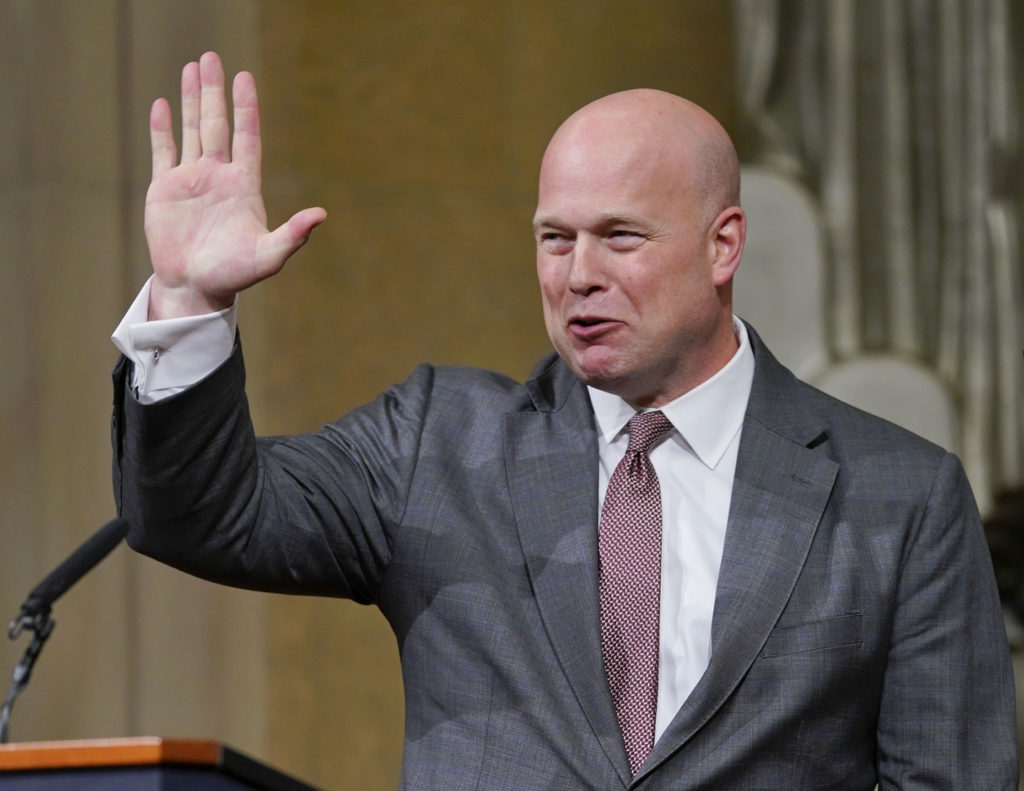
Three Senate Democrats filed a lawsuit Monday arguing that Acting Attorney General Matthew Whitaker‘s appointment is unconstitutional and asking a federal judge to remove him. The suit, filed by Sens. Richard Blumenthal of Connecticut, Mazie Hirono of Hawaii and Sheldon Whitehouse of Rhode Island, argues that Whitaker’s appointment violates the Constitution because he has not been confirmed by the Senate. Whitaker was chief of staff to Attorney General Jeff Sessions and was elevated to the top job after Sessions was ousted by President Donald Trump on Nov. 7. The Constitution’s Appointments Clause requires that the Senate confirm all principal officials before they can serve in their office. The Justice Department released a legal opinion last week that said Whitaker’s appointment would not violate the clause because he is serving in an acting capacity. The opinion concluded that Whitaker, even without Senate confirmation, may serve in an acting capacity because he has been at the department for more than a year at a “sufficiently senior pay level.” “President Trump is denying senators our constitutional obligation and opportunity to do our job: scrutinizing the nomination of our nation’s top law enforcement official,” Blumenthal said in a statement. “The reason is simple: Whitaker would never pass the advice and consent test. In selecting a so-called ‘constitutional nobody’ and thwarting every senator’s constitutional duty, Trump leaves us no choice but to seek recourse through the courts.” The lawsuit comes days after a Washington lawyer challenged Whitaker’s appointment in a pending Supreme Court case dealing with gun rights. The attorney, Thomas Goldstein, asked the high court to find that Whitaker’s appointment is unconstitutional and replace him with Deputy Attorney General Rod Rosenstein. The state of Maryland also made a similar court filing last week in a legal dispute with the Trump administration over the Affordable Care Act. Rosenstein, the second-ranking Justice Department official, has been confirmed by the Senate and had been overseeing special counsel Robert Mueller’s Russia investigation. Whitaker is now overseeing the investigation. In a court filing Monday, the special counsel’s office said Whitaker’s appointment has “no effect” on a legal challenge to Mueller’s authority brought by an aide to former Trump confidant Roger Stone, Andrew Miller, who defied a grand jury subpoena last summer and was held in contempt by a judge. The filing came after the court asked the special counsel’s office and Miller’s lawyers to submit papers that address what, if any, effect Whitaker’s appointment would have on the case. The Justice Department issued a statement Monday defending Whitaker’s appointment as “lawful” and said it comports with the Appointments Clause, the Federal Vacancies Reform Act and legal precedent. “There are over 160 instances in American history in which non-Senate confirmed persons performed, on a temporary basis, the duties of a Senate-confirmed position,” Justice Department spokeswoman Kerri Kupec said. “To suggest otherwise is to ignore centuries of practice and precedent.” The Federal Vacancies Reform Act allows an acting official to serve in a vacant position for up to 210 days, though the official may continue serving while a president’s nomination to that position is pending before the Senate. Republished with permission from the Associated Press.
Kay Ivey details 8 new restoration projects thanks to additional BP funds
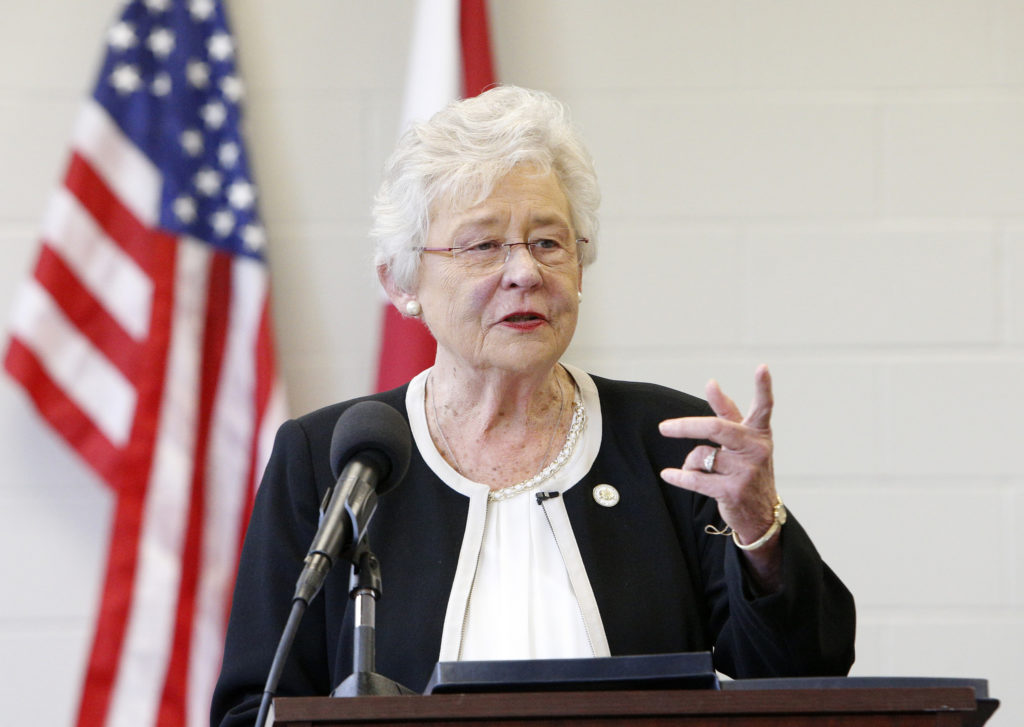
Governor Kay Ivey announced on Monday the National Fish and Wildlife Foundation (NFWF) approved more than $48 million for eight new projects, which focus on the restoration and conservation of Alabama’s natural resources. “Alabama’s Gulf Coast is of great ecological importance to our state, and it is imperative we protect and restore those natural resources harmed by the Deepwater Horizon oil spill,” Ivey said. “Today’s announcement gets us one step closer to success. We are improving our water quality in the Bon Secour River and Mobile Bay, bolstering our fish populations with the expansion of artificial reefs, and ensuring resiliency along our coastline. Thank you to our local, state, and federal partners for developing this impressive slate of projects.” In 2013, a U.S. District Court approved two plea agreements resulting from the criminal charges against BP and Transocean as responsible parties to the Deepwater Horizon oil spill. The settlement directs a total of $2.54 billion to NFWF to establish a Gulf Environmental Benefit Fund (GEBF) over a five-year period to support ecological projects in all five Gulf States. A total of $356 million will be paid into the GEBF for conservation projects dedicated to the State of Alabama. “This announcement brings the number of NFWF GEBF-funded projects to 32 in the State of Alabama for a total investment of close to $200 million. These projects will significantly enhance long-term restoration and protection of our natural resources and will ensure the sustainability and resiliency of our coastal ecosystem. We thank NFWF and our local partners for their hard work during this year-long process,” said Alabama Department of Conservation and Natural Resources Commissioner Chris Blankenship. Alabama 2018 projects Alabama Artificial Reef and Habitat Enhancement Plan – Phase II Amount: $22.5 million This project will build on phase I of the plan to construct and enhance artificial reef habitat in Alabama’s coastal waters. Alabama’s artificial reef system provides habitat for economically important reef fishes and provides a marine environment, allowing fish populations to flourish. Over time, subsidence, storm damage, and other factors have caused deterioration of many of the state’s existing artificial reefs. Phase II of the project aims to continue to increase connectivity between habitats used by fish in early and adult life through creation or enhancement of inshore, nearshore, and offshore reef habitats. Analysis of phase I response monitoring suggests increases in the abundance of red snapper on artificial reefs post deployment. Future analysis will include examination of responses in biomass, other species of interest, and the overall marine community. Bon Secour National Wildlife Refuge Acquisition – Three Rivers Parcel Amount: $4.4 million This project will acquire and restore 236 acres of estuarine and forested shrub wetlands on Fort Morgan Peninsula. The parcel is within the acquisition boundary of the Little Point Clear Unit of the Bon Secour National Wildlife Refuge (BSNWR), bordered on the east, west, and north by Bon Secour Bay. Following acquisition, the property will be transferred to the U.S. Fish and Wildlife Service (USFWS) to become part of the BSNWR. Habitats within this unit consist of scrub/shrub, pine flatwoods, saltwater marsh, and tidal creeks, scattered with permanent and semi-permanent wetlands. Fort Morgan Peninsula is under significant and consistent threat of commercial and residential development that would result in loss of habitat and negatively impact living coastal and marine resources. Bon Secour River Headwater Restoration – Phase I Amount: $1.5 million This project will complete engineering and design plans for creating wetlands to treat urban runoff impacting downstream fisheries. The constructed wetlands will address nutrient, sediment and debris flow to improve habitat quality in the lower Bon Secour River and Bon Secour Bay, which historically has included south Alabama’s most significant and productive shellfish habitats and nursery areas for juvenile finfish. This section of the Bon Secour River encompasses major headwaters and the main channel of the Bon Secour River immediately downstream from the City of Foley. Rapid development of the City over the past two decades has contributed signficant nutrient and sediment loading to the Bon Secour River and Bay, with adverse effects to downstream fisheries. Under the proposal, the City will acquire 94 acres of undeveloped property along the Bon Secour River to construct the stormwater wetlands. Dauphin Island Causeway Shoreline Restoration: Engineering & Design Amount: $250,000 This project will fund the engineering and design of breakwaters to enhance, protect, and improve resiliency of marsh and oyster habitat adjacent to the Dauphin Island Causeway. Erosive forces, like tidal action, wave energy, and storms, provide a constant threat to the coastal habitats in this area. Productive wetland habitat has been lost along the Bay side of the Causeway, stimulating the Alabama Department of Transportation to install and rely upon riprap revetment to protect the low-lying transportation corridor. The goal of the project is to stabilize the shoreline along the Bay side of the Dauphin Island Causeway and to create/enhance aquatic, wetland, and riparian habitats in the region. The project will serve as leverage for a companion proposal submitted to the National Coastal Resiliency Fund. Deer River Coastal Marsh Stabilization and Restoration – Phase I Amount: $750,000 This project will complete engineering & design plans to stabilize and restore the shoreline and intertidal salt marsh at the mouth of Deer River, adjacent to the Theodore Industrial Canal and Mobile Bay. Intertidal marsh at the mouth of Deer River has experienced significant deterioration and loss of natural function due to erosion from heavy storms, tides, and ship wakes. In the past two decades, approximately nine acres of productive intertidal marshland and shoreline have been lost. These habitats buffer wave energy and storm surges, protecting the shoreline as well as neighboring upland and wetland habitats, preserving the long-term sustainability of the ecological services they provide. Once designed and constructed, this project will stabilize and enhance up to 5,600 feet of shoreline on Mobile Bay necessary to protect and enhance over 275 acres of existing priority coastal saltmarsh, along with the potential to create additional marsh habitat. Lightning Point Restoration Project
Additional $280M issued in BP oil spill restoration grants

Gulf states are getting an additional $280 million in restoration grants from the BP oil spill of 2010. The National Fish and Wildlife Foundation says Monday that Louisiana is getting $161 million to restore three barrier islands. Florida is receiving $53 million, including $16 million to protect coastal forest and wetlands along the Lower Suwanee River and Big Bend coast. Nearly $49 million will go to Alabama, including $22.5 million for artificial reefs. Texas will get $19 million, including $6 million to protect 575 acres of coastal habitat. The foundation is getting $2.5 billion over five years for restoration projects. The money’s coming from criminal damages paid by BP PLC and drilling company Transocean Deepwater Inc. Monday’s grants bring the total so far to $1.3 billion. Republished with permission from the Associated Press.
John Merrill wants more space between polling sites and campaigns
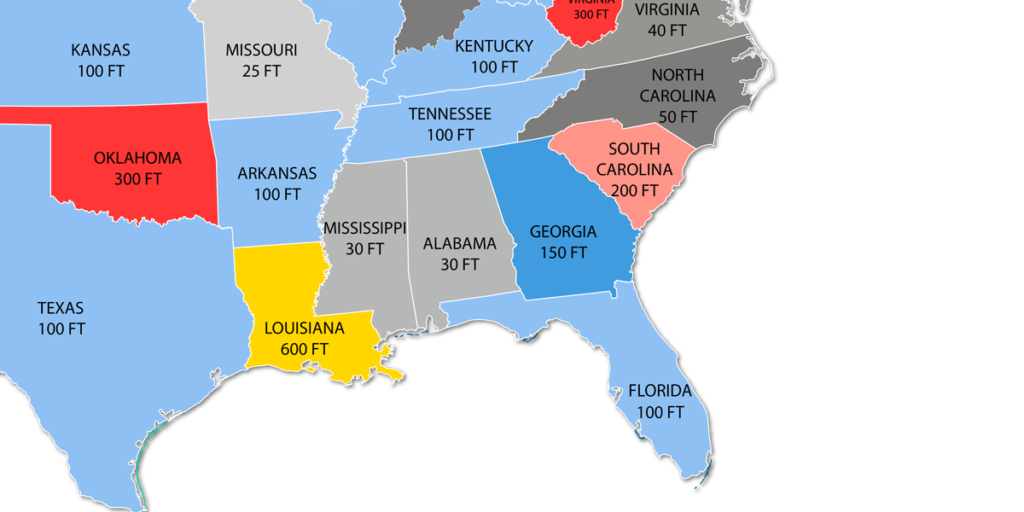
If you’ve ever seen volunteers standing outside of a polling place on Election Day, you’ve witnessed electioneering. Across the country, states have different rules and policies about the practice — that is, any written or verbal communication that could be interpreted as trying to sway a voter’s opinion at the polls — that details just how close volunteers and campaign paraphernalia is allowed to be to a polling place. In Alabama, campaigners need only be 30 feet away from the entrance of the polling place. But Alabama’s chief election officer, Secretary of State John Merrill thinks it’s time for that to change. “We have one of the most liberal laws in the nation at 30 feet,” Merrill said in an interview with AL.com. “We think that needs to be addressed.” But not everyone agrees with Merrill. Democrats don’t consider changes to the the electioneering zone a high priority. “There are more important issues that we should be focusing our attention on to make the process easier and more effective than it already is,” Hunstville-Democrat and Alabama House Minority Leader, State Rep. Anthony Daniels told AL.com. What is engineering Election Day electioneering includes, but is not limited to, activities such as: Asking how voters intend to voters and soliciting their votes for a particular candidate or issue. Distributing, and/or wearing, t-shirts, buttons, signs, bumper stickers newspapers, or flyers. Placing signs, posters, stickers, or other material relating to a particular candidate or issue. Passing out handouts that solicits a vote or recommends a given candidate, slate of candidates, or position on a given issue. Innocent remarks, including comments about facts or opinions about politics are often interpreted as electioneering and are thus not allowed in the polls on Election Day. Electioneering across the country While Merrill calls Alabama’s electioneering laws among the “most liberal in the nation,” there are several states with even more lax policies. Topping the list is Pennsylvania where campaigners are required to be just 10 feet away the entrance of a polling place — by far the most liberal allowance in the country. But most states across the country, 32 of them, require at least 100 feet of distance between electioneering and the polls. But that’s not the case in the South, where five states require 50 feet or less, which puts Alabama in good company — matching neighbor-state’s Mississippi’s requirement and ahead of Missouri’s 25 feet. Meanwhile, just two states over in Louisiana, you’ll find the most stringent of all electioneering laws in the country. The Pelican State requires a whopping 600 feet distance the polls — 300 feet more than any other state.
In threat to Nancy Pelosi, 16 Dems say they’ll back new leadership

Sixteen maverick Democrats have released a letter saying they’ll vote for “new leadership” when the House picks leaders in January. That poses a threat to Nancy Pelosi‘s effort to become speaker. The California Democrat is favored by most Democrats to lead them, as she has done since 2003, when the new Congress convenes in January. Pelosi seems sure to win her party’s nomination to be speaker when Democrats vote on that after Thanksgiving. A small group opposes her. Their letter says Democrats won on “a message of change,” and they say they plan to deliver that. Democrats have won 232 seats and might win a few more. Sixteen votes against Pelosi might block her from getting the 218 votes, a House majority, that she’d need to win the speakership. Republished with permission from the Associated Press.
Mike Hubbard prosecutor Matt Hart resigns from Attorney General’s office
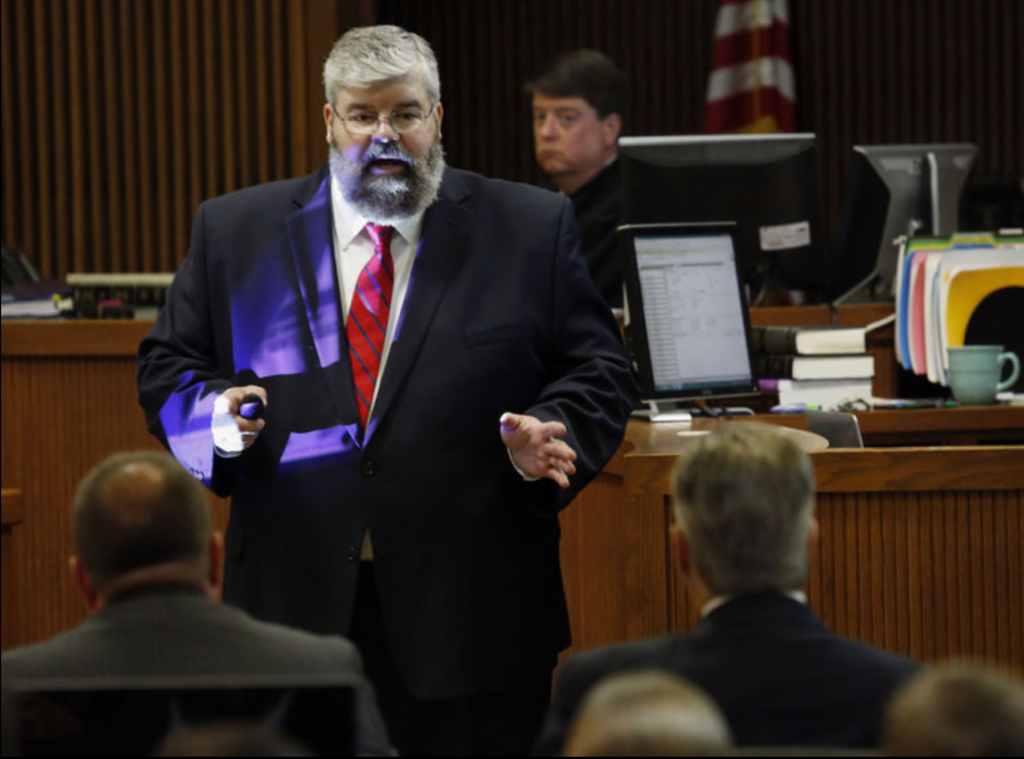
Prosecutor Matt Hart resigned from the Alabama Attorney General’s office Monday morning, the office has confirmed. “The Attorney General accepted Mr. Hart’s resignation today and thanked him for his service to the State. It is the policy of this office to refrain from comment about personnel matters, so we will have no further statement,” said Mike Lewis, spokesman for the Attorney General’s office. Hart is most known for the prosecution and conviction of former House Speaker Mike Hubbard. This story is breaking and will be updated.
EPA regional administrator Trey Glenn resigns to fight ‘unfounded charges’

In August of 2017, the former director of the Alabama Department of Environmental Management (ADEM), Trey Glenn, was named the U.S. Environmental Protection Agency’s (EPA) Region 4 Administrator. On Monday, Glenn resigned from that post amid arrest in ongoing ethics investigation. “As you know, unfounded charges haves been levied against me that I must and will fight,” Glenn said in his resignation letter to EPA Acting Administrator Andrew Wheeler. “Stepping down now, I hopes removes any distraction from you and all the great people who work at EPA as you carry out the Agency’s mission.” A grand jury indicted Glenn last week. On Thursday, he was arrested on criminal ethics for multiple violations of Alabama’s Ethics Act. He was booked into a Jefferson County jail in Birmingham before he was released on a $30,000 bond. Glenn’s history with Alabama As director of ADEM from 2005 – 2009, Glenn managed over 600 employees tasked with ensuring a safe, healthy, and productive environment to all Alabama residents. Prior to that he served as division director for the Alabama Office of Water Resources from 2001- 2005 where he was responsible for leading day-to-day operations on coordinating and managing Alabama’s water resources. Before to his post at the EPA, Glenn was working as an independent engineer consultant and business owner, focused on environmental issues. Then-EPA Administrator Scott Pruitt made the announcement of his appointment. “Trey Glenn will bring invaluable experience as regional administrator having spent over two decades working in the field of environmental and regulatory policy,” said Pruitt. “Mr. Glenn will help us carry out President Trump’s vision of creating a more streamlined and efficient EPA that focuses on the Agency’s core mission, while also providing more regulatory certainty to our nation’s businesses.” Alabama Governor Kay Ivey echoed Pruitt’s confidence in Glenn. “We are proud to have a person of Trey Glenn’s caliber leading such an important organization for our area. His experience as Director of the Alabama Department of Environmental Management places him in a unique position to be prepared to work with these southern states,” said Ivey. “We are also especially glad to know someone with in-depth knowledge of Alabama will be overseeing our region. Our state looks forward to working closely with Trey and the EPA team to ensure the needs of the state are met and that we stay environmentally friendly.” Alabama’s Senior U.S. Sen. Richard Shelby said he believed Glenn was well-prepared for the new role. “As an accomplished environmental engineer from Alabama, Trey Glenn is well-prepared for this new role and challenge as the EPA Region 4 Administrator,” added Shelby. “Trey has a proven record of leveraging internal and external operations to advance clearly defined goals. Having served as the director of the Alabama Department of Environmental Management, he understands the value and importance of state authority and control. I am confident that Trey will provide respected leadership across the eight state region, while also promoting and protecting a strong and healthy environment.” Read Glenn’s full resignation below:
In year of Democratic hopes, GOP comes out on top in Florida
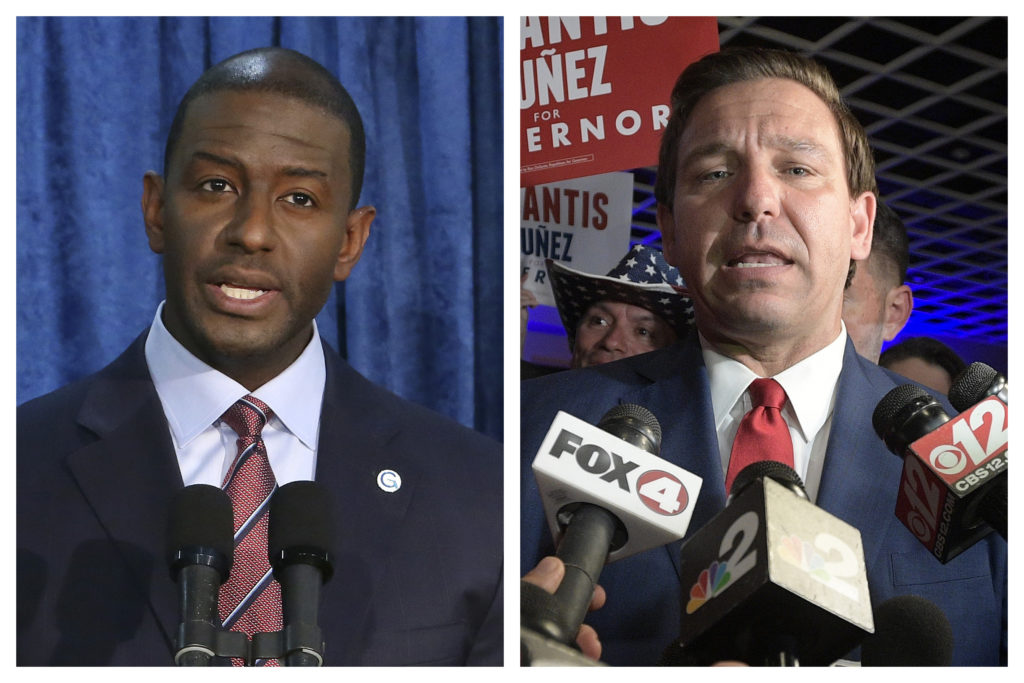
This was the year Florida’s Democrats spoke ambitiously of ending their 20-year journey in political exile in this battleground state. Instead, election results after a tense and bruising recount showed Republicans coming out on top for governor and even picking up a U.S. Senate seat. After a recount dragged on for nearly two weeks, top Democratic candidates in the state came agonizingly close but fell short of their avowed goal. Democratic candidate for governor Andrew Gillum conceded Saturday, followed by three-term incumbent U.S. Sen. Bill Nelson a day later. More than 8 million voters weighed in — a far higher turnout than in past midterm elections — but the result was the same for Democrats. When official returns were posted Sunday, Republican Gov. Rick Scott led Nelson in the Senate race by slightly more than 10,000 votes. Republican Ron DeSantis edged out Gillum, Florida’s first African-American nominee for governor, by more than 32,000 votes. State officials will certify the official results Tuesday. The close of nearly two weeks of high political drama in the presidential swing state likely spelled the end of the political career of the 76-year-old Nelson. First elected to Congress 40 years ago, Nelson had been a Democratic survivor in an era when Republicans swept to power in Florida in the ’90s. He was first elected to the U.S. Senate in 2000 and was seeking a fourth term. “It has been a rewarding journey as well as a very humbling experience,” Nelson said in a videotaped statement . “I was not victorious in this race but I still wish to strongly reaffirm the cause for which we fought: A public office is a public trust.” The political journey, however, appears to still be unfolding for Gillum, who ran on a liberal platform that included expanding Medicaid and raising taxes to spend more on education — both potential hard sells in the GOP-controlled Legislature. In his concession video , Gillum told supporters to “stay tuned” about his next move. “Although nobody wanted to be governor more than me, this was not just about an election cycle,” said the 39-year-old Tallahassee mayor. “This was about creating the type of change in this state that really allows for the voices of everyday people to show up again in our government, in our state, and in our communities. We know that this fight continues.” In an interview on Fox & Friends on Monday morning, DeSantis called Gillum “a very formidable opponent.” “He was the only one that inspired anybody with enthusiasm. … He was really responsible for driving a lot of these Democrats to vote who don’t normally vote in midterm elections. So … it was a tough fight.” Now, ahead of the 2020 presidential election, it will be Republicans again in firm control in Florida. A Scott victory means Florida will now have two Republican senators while padding the chamber’s Republican majority. Nelson, a Florida native with a distinct twang, fought a hard and acrimonious race against Scott, a multimillionaire businessman and relative newcomer who jumped into politics eight years ago and was urged to run this time by President Donald Trump. And it was the third time Scott barely edged out a Democratic opponent. “Now the campaign truly is behind us, and that’s where we need to leave it,” Scott said in a statement after official results were posted. “We must do what Americans have always done: come together for the good of our state and our country. My focus will not be on looking backward, but on doing exactly what I ran on: making Washington work.” Scott, who was also interviewed by Fox & Friends on Monday morning, said Nelson was “gracious” when he called him on Sunday to congratulate him. “I told him if he has any ideas of how to do my job better, don’t hesitate to call me,” Scott said. “I represent everybody in my state.” Trump congratulated Scott on Twitter: “From day one Rick Scott never wavered. He was a great Governor and will be even a greater Senator in representing the People of Florida. Congratulations to Rick on having waged such a courageous and successful campaign!” While Scott and Nelson disagreed on such key issues as gun control, health care and the environment, their campaign focused primarily on attacking each other’s character and competence. Scott bashed his rival as ineffective and out-of-touch in TV ads paid for by more than $60 million of the Republican’s own money. Nelson branded Scott as a Trump follower who used the governor’s office to pad his wealth. Nelson and his allies also ran ads that questioned Scott’s ethics, pointing to his ouster years ago as chief executive of health care giant Columbia/HCA amid a federal fraud investigation. Scott was never charged with any wrongdoing, though the health care conglomerate paid a then-record $1.7 billion fine for Medicare fraud. Nelson was seen as a moderate who rarely made waves or earned much national exposure as he largely devoted himself to Florida-specific issues. One of his more notable moments came when he flew on Space Shuttle Columbia while serving in Congress. His only other election loss came in 1990 in a Democratic primary for governor — to the eventual winner Lawton Chiles. After it became clear the Senate race would head to a legally required recount, Nelson and Democrats filed several lawsuits that challenged everything from Scott’s authority over the state’s election division to deadlines for mail-in ballots. Republicans also raised questions about how some South Florida election officials were counting the ballots. The South Florida Sun-Sentinel reported late Sunday that one of those officials, Broward County Supervisor of Elections Brenda Snipes, had presented a resignation letter to step down in January. The report cited an attorney who works as counsel to the Broward elections office, Burnadette Norris-Weeks. Snipes couldn’t immediately be reached for comment. Republished with permission from the Associated Press.
New black sheriff, court officer in Birmingham rethinking policing
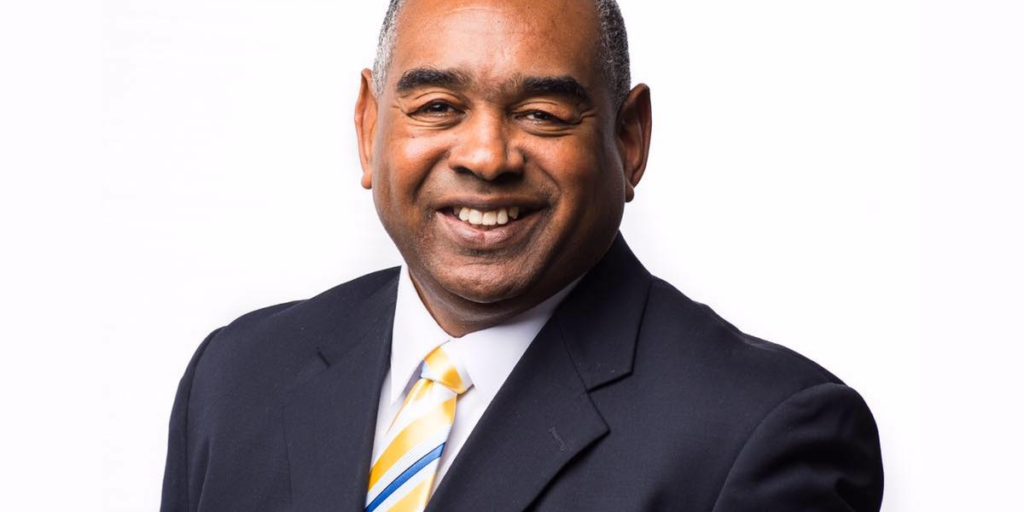
Veteran Alabama law enforcement officer Mark Pettway grew up in a black neighborhood called “Dynamite Hill” because the Ku Klux Klan bombed so many houses there in the 1950s and ’60s. Now, after becoming the first black person elected sheriff in Birmingham – on the same day voters elected the community’s first black district attorney – Pettway sees himself as part of a new wave of officers and court officials tasked with enforcing laws and rebuilding community trust fractured by police shootings, mass incarceration, and uneven enforcement that critics call racist. In a state where conservative politicians typically preach about getting tough on crime, Jefferson County’s new sheriff ran and won on an alternative message. He favors decriminalizing marijuana, opposes arming school employees, supports additional jailhouse education programs to reduce recidivism and plans for deputies to go out and talk to people more often, rather than just patrolling. “Going forward we need to think about being smarter and not being harder,” said the Democrat Pettway, 54. While the nation’s law enforcement officers are still mostly white men, and groups including the American Civil Liberties Union and Black Lives Matter call for sweeping changes in the criminal justice system, minorities appear to be making gains nationwide. In Pettway’s case, strong turnout by African-American voters, combined with national concern over police shootings of unarmed people of color, helped him defeat longtime Sheriff Mike Hale, a white Republican, said professor Angela K. Lewis, interim chair of political science at the University of Alabama at Birmingham. Winners in other cities attributed their success to similar factors. Houston voters elected 17 black women as judges in the midterms. Even before the election, nearly the entire criminal justice system in the Georgia city of South Fulton, near Atlanta was run by black women, including the chief judge, prosecutor, chief clerk and public defender. They’re offering more chances for criminal defendants to avoid convictions through pre-trial programs and increased use of taxpayer-funded lawyers to protect the rights of the accused. Chief Judge Tiffany C. Sellers of South Fulton’s municipal court said officials also explain court procedures in detail to defendants, many of whom haven’t been in court before and are scared. “Black and brown people often feel disenfranchised from the system, and I want them to understand what is going on,” Sellers said. “At the end of the day they may not like what I did with their case, but at least they know I explained things to them.” Midterms voters in five North Carolina counties elected black Democratic sheriffs for the first time, including Gerald Baker in Wake County. He defeated a longtime Republican incumbent by campaigning on ending the county’s participation in a Trump administration program to detain people suspected of being in the country illegally and advocating for greater police accountability. The message resonated in a county where a deputy and two highway troopers were charged in the beating of a black man earlier this year. Kyron Hinton suffered injuries including a broken nose, multiple dog bites and a fractured eye socket. “If we make a mistake out here in the actions that we take then we should take responsibility for those things,” Baker said in an interview after the election. Yet despite gains by people of color, officials like Baker still represent a minority in U.S. law enforcement. A Justice Department report released in 2013 showed that law enforcement agencies had become more racially and ethnically diverse over a 26-year period, yet the nation’s overall law enforcement community remained overwhelmingly white and male. Local police departments, which typically patrol inside city police jurisdictions, were about 73 percent white, the report said. Sheriff’s offices, which usually patrol in less urban areas and often operate county jails, were even whiter, at about 78 percent white. The report said research found that African-American, Latino and Asian-American communities were all underrepresented within police agencies relative to the populations they served. The disparity was greatest among blacks in areas where black population is proportionately largest, said the report. In Birmingham, Sheriff-elect Pettway of Jefferson County said he wants to increase hiring among minorities and women after he takes office in January. The department’s roughly 680-person staff should better reflect the county’s population, which is almost evenly split between blacks and whites, he said. Some of Pettway’s positions track those of the National Organization of Black Law Enforcement Executives, with about 3,000 members in all levels of police work. The group opposes arming teachers and held a conference last year aimed at broadening communication between police and community members. Pettway said he plans to increase the use of police body cameras, which he said was a big selling point during his campaign. “People loved that. With all the things that have been happening in law enforcement, people wanted accountability,” he said. Republished with permission from the Associated Press.
Bradley Byrne: Let us give thanks
On October 3rd, 1863, President Abraham Lincoln issued a Proclamation on Thanksgiving establishing the fourth Thursday of November as a national holiday, encouraging every American – at home and abroad – to give pause and give thanks. Thanksgiving had existed before in America. There was the First Thanksgiving celebrated by the Pilgrims and Native Americans in Massachusetts in 1621, of course, and Presidents George Washington, John Adams, and James Madison also issued proclamations encouraging the celebration of Thanksgiving. It is interesting that during a time as perilous as the height of the Civil War, President Lincoln entrenched this holiday of gratitude and togetherness into the American year. 1863 was a time of divisiveness and uncertainty, and yet people throughout the country could still find things to be thankful for. Only two months after this proclamation, on December 3rd, 1863, the final symbolic decoration was added to the outside of the Capitol Dome in Washington: a 19-foot tall statue known simply as Freedom. The freedoms we enjoy today are some of the greatest things we can be thankful for. For many throughout the world, the freedoms we enjoy do not exist for them. As we gather with friends and family, I hope you will take time to answer this simple question: what are you thankful for this year? For myself, I am extremely thankful for my family, my friends, and for the opportunity I have to serve you in Washington. I am thankful for the many pieces of landmark legislation we were able to pass this year, including fully funding our military for next year, providing funds for vital water infrastructure projects, and enacting meaningful change to the G.I. Bill and the Veteran’s Choice Program. I am also thankful for all of the positive economic news this year: our thriving economy and jobs market are creating more opportunities for people in Alabama and around the country. With good news there is also bad. The acts of violence we have seen over recent months in Pennsylvania and California demonstrate the amount of evil there is still to combat in this world. The extremely deadly wildfires currently raging in California causes our hearts to ache for all those affected so unexpectedly and so close to the holidays. But even in these tragedies, there are things to be thankful for. The first responders who risk their lives to help those in need; the medical professionals who provide service to the sick and those in pain; and perhaps the thing for which we as Americans can be most thankful is our interminable spirit to come together as one, help our neighbors, and make the world a better place to live through one small act of kindness at a time. More personally, I am thankful to be a child of a loving, forgiving, and all present God. I’m also thankful to call Southwest Alabama home. Of course, I am thankful for my wonderful family; every moment I get to spend with Rebecca, our children, and our grandchildren is a moment I feel truly blessed. Lastly, I am eternally grateful for the opportunity I have again to serve the people of Southwest Alabama over the next Congress. There is a memorable verse from the book of John: “And you will know the truth, and the truth will set you free.” (John 8:32) One of the truths we can hold firmly to this Thanksgiving is this: we in the United States are richly blessed with life, prosperity, and freedom. Knowing that, we can be very thankful indeed. From my entire staff, family, and myself, we wish you a very happy Thanksgiving. • • • Bradley Byrne is a member of U.S. Congress representing Alabama’s 1st Congressional District.

